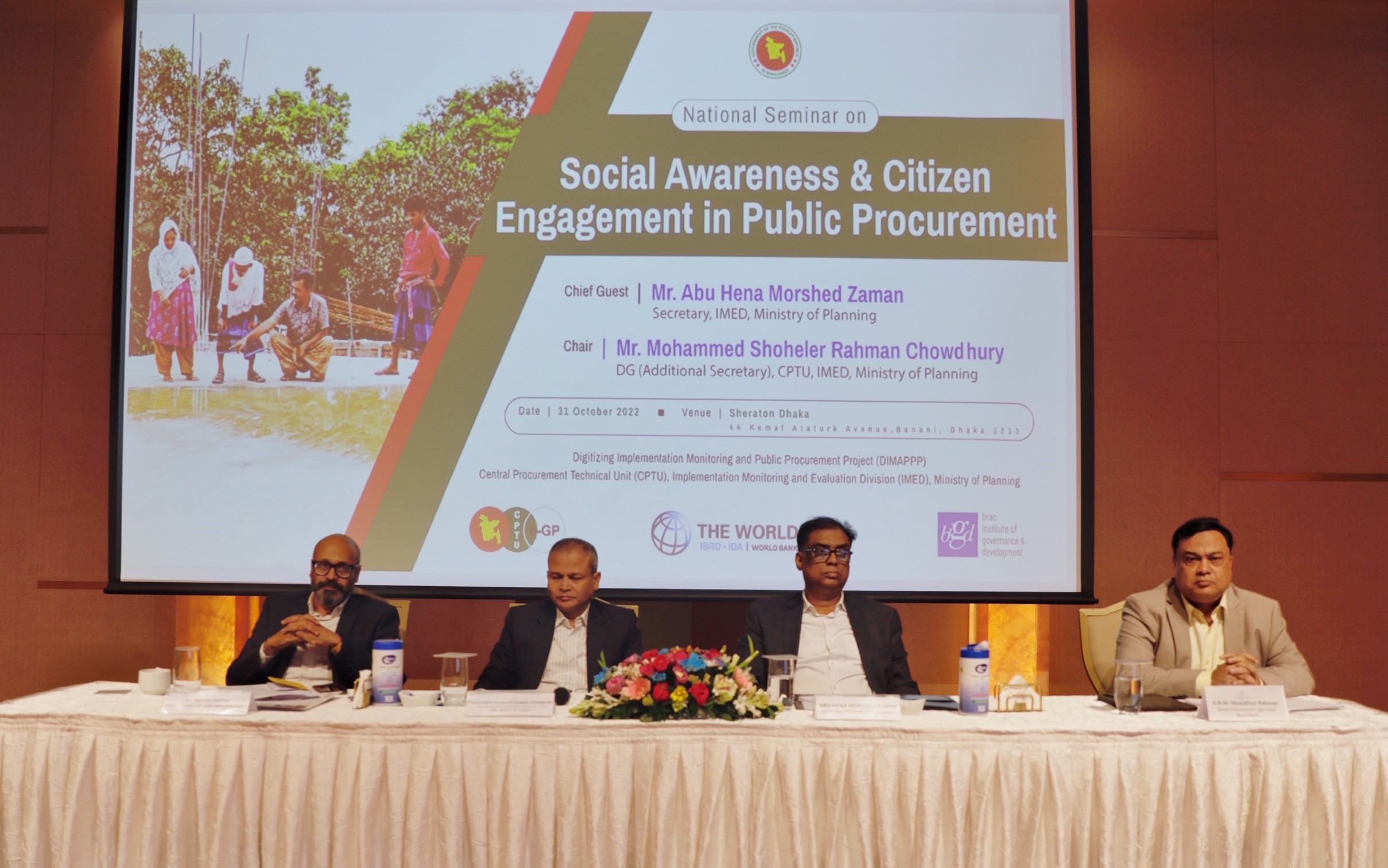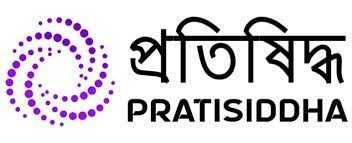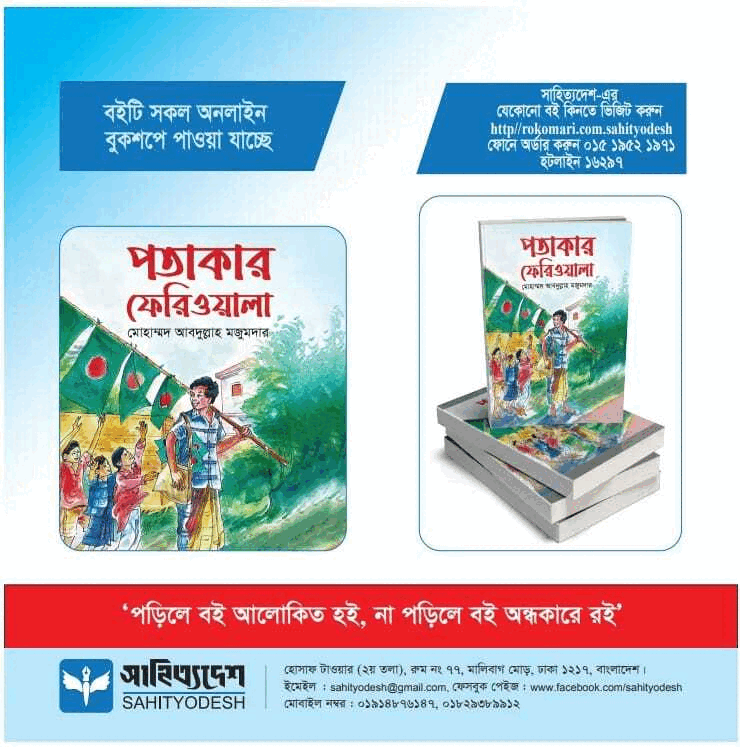Bangladesh’s public procurement is now conducted almost entirely online, thanks to the public procurement reforms that have been implemented over the past couple of decades.
The Central Procurement Technical Unit (CPTU) of the Implementation Monitoring and Evaluation Division (IMED) under the Ministry of Planning organized a National Seminar on Social Awareness and Citizen Engagement in Public Procurement on todayat Sheraton Hotel to discuss the successes and challenges ahead in this space.
The electronic government procurement (e-GP) portal introduced in 2011 brought the entire tendering process online, making the public procurement system in Bangladesh more transparent, accountable, and efficient. This led to a reduction in procurement delays, an increase in tendering competition, dynamic digital data on procurement andan annual savings of $150 million in 2018 – enough money to build over 1500 km of rural roads or 3000 primary schools in Bangladesh.
However, introduction of this technology was not a standalone. Alongside, many steps were taken to make this a success. Interventions included the adoption new stricter regulations, increased efforts to reach out to thousands of stakeholders with campaigns and trainings about the importance of transparent public procurement, capacity building of both procurement staff as well as private sector bidders, and finally citizen engagement to ensure best results.
Mr. Md. Aziz Taher Khan, Director, CPTU, IMED, Ministry of Planning, presented the opening remarks at the event, “Reform requires not only technical content but also substantial social and behavioral content. The social element of reform: what’s in it for citizens – must be articulated. Citizens need to be educatedabout the reform to ensure that it serves their needs.”
To demystify procurement and raise citizen awareness around the reform, a communication strategy and campaign was developed, including trainings, press briefings, posters, TVCs and more. To encourage dialogue and social accountability at different tiers of stakeholders, from policy makers to the grass-roots level, and to enable citizens to participate in the procurement cycle, four platforms were formed. The Government Tenderers Forumfacilitates dialogue and trust-building between tenderers and public procurement officials. The Public Private Stakeholders Committee was formed to tackle policy level challenges. 316 citizen groups were formed for site-specific monitoring of public procurement project implementation in 48 upazilas to monitor over 316 projects, improving the quality of public work at the field level. Women who were included in the citizen groups reported feeling more confident and engaged in the community overall. Procurement officials reported feeling relieved of pressure from rent-seekers. And finally, the formation of a Citizen Portal website and app, making public procurement data available to the public. This portal includes a Citizen’s Corner where citizens can leave feedback, and dashboards for analysis of data. This data can be used to incentivize enhanced performance through gentle competition between districts, ministries, and procuring entities.
The national seminar shared findings and lessons learned under the World Bank projectDigitizing Implementation Monitoring and Public Procurement Project (DIMAPPP).
Dr Imran Matin, Executive Director, BRAC Institute of Governance and Development (BIGD), BRAC University, emphasized on the importance of integrating citizen engagement components in all cycles of project development, including design, implementation and evaluation stages.He also mentioned, "We must focus on incorporating the lessons from our experience in Citizen Engagement from the DIMAPP Project into the academic curricula of BIGD's Masters in Procurement and Supply Management (MPSM) and Master of Development Studies (MDS) programs, in order to create knowledge for the next generation of procurement professionals."
Mr. Mustafizur Rahman, World Bank, said, “If media and citizens continue to know about and take interest in how the government spends its public funds, there will be greater social accountability, local needs are more likely to be met, the quality of public service delivery will improve, and overall wellbeing of citizens will go up.”
Mr. Abu HenaMorshedZaman, Secretary, Implementation Monitoring and Evaluation Division (IMED) was present at the event as the Chief Guest. He said, “The Government of Bangladesh, with the great steering force of CPTU, has created a dynamic space for citizen engagement, democratizing public sector processes. This shift represents a deep change in bureaucracy, transforming the government into an interconnected, modern organism that can evolve with changing times.”
Mr. Mohammed Shoheler Rahman Chowdhury, DG, CPTU, IMED, Ministry of Planning concluded the event, “Reversals can happen at any ti

Engaging Citizens for Best Results in Local Public Works

